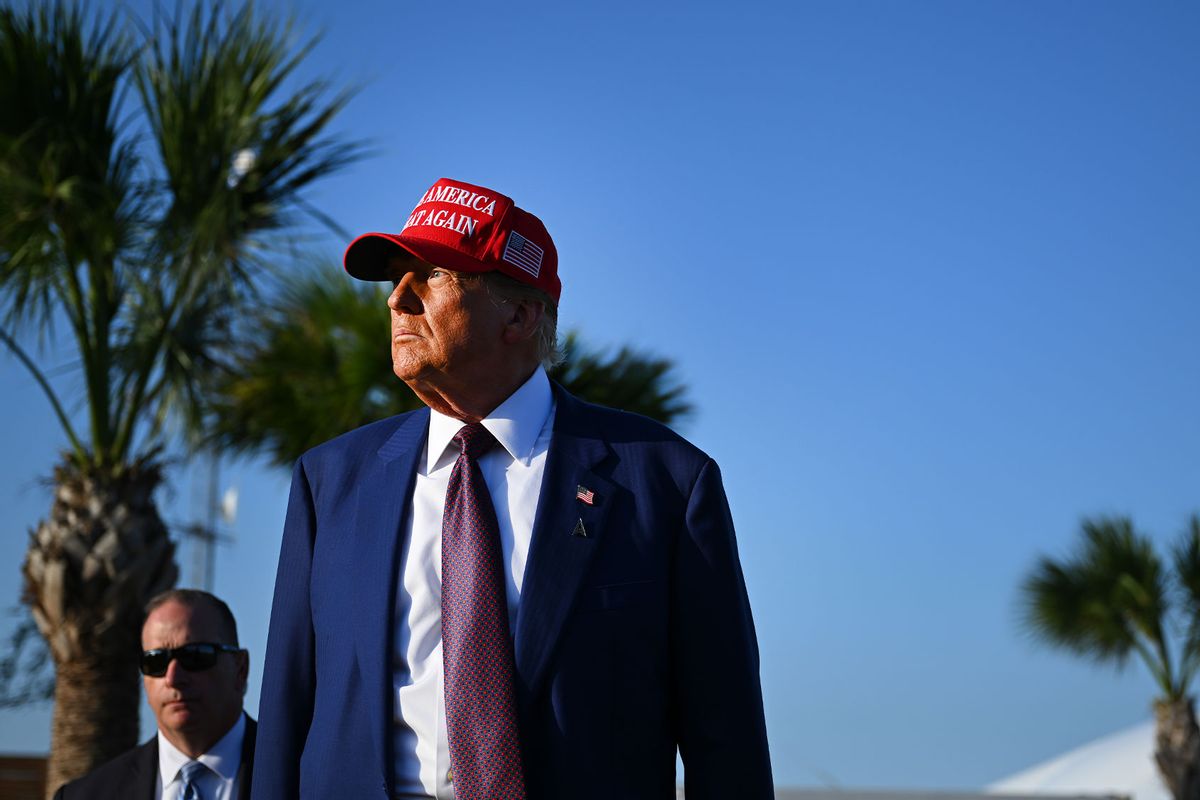President-elect Donald Trump's advisors are drawing up plans to strip federal funding from cities that do not comply with the administration's deportation policies, three sources familiar with the conversations told The Washington Post.
Many of the president-elect's allies have also discussed the idea publicly, with billionaire entrepreneur Vivek Ramaswamy, the co-leader of Trump's "Department of Government Efficiency" emerging as a chief advocate. He and Elon Musk have been charged by Trump with slashing federal spending across all departments, and they might accomplish some of that goal by blocking federal money from being dispersed in particular jurisdictions.
“Not an iota, not a cent of government spending should go to subsidize this. Not to sanctuary cities, not to federal aid to people who are in this country illegally, and we’re going to see a large number, by the millions, of self-deportations as well," Ramaswamy said earlier this month on ABC's "This Week."
"Sanctuary cities" refer to municipalities that do not enforce federal policy on deportations, such as by denying U.S. Immigration and Customs Enforcement access to jails. Supporters of sanctuary policies argue that deportations wrench families apart and undermine anti-crime measures by deterring people from calling authorities in an emergency, for fear that doing so would lead to their banishment from the country. Furthermore, they say that local police are under no obligation to enforce directives from ICE without a criminal warrant signed by a judge.
"Self-deportation," meanwhile, refers to the idea that migrants will leave the country if life for them is made unbearable enough. But Trump is clearly not betting on most of them making what he views as the right decision. Instead, he has promised to use the full power of the federal government to enact mass deportations once he becomes president. Now that he has won, blue-state governors and Democratic mayors are pledging to defy him. It's a similar to what played out after 2016: Just as Trump faced difficulty in slashing funding to his foes then, he is likely to run into the same hurdles this time around.
Chicago Mayor Brandon Johnson, a Democrat, told the Post that “there will not be any cooperation” on deportations and that he would challenge any attempt by the federal government to defund the city.
“We’re not intimidated or in the least bit afraid of threats that wish to undermine our values or any effort to separate working people from one another,” Johnson said. “I’m certainly not going to compromise our local police department’s work by adding a component of their work that is not just.”
We need your help to stay independent
In his first term, Trump issued an order for federal agencies to block cities like Chicago from receiving grants, but a judge struck it down. In 2019, however, his Justice Department was permitted by a federal appeals court to give preferential treatment to cooperative cities on providing community policing grants. Trump reportedly wants to try a more extensive blockade again, but Matthew Lawrence, an assistant dean at the Emory University law school and former White House lawyer, told the Post that local governments could argue that spending decisions are the purview of Congress, not the president, if and when they sued the Trump administration over funding or lack thereof.
While Democrats might try to throw up roadblocks in Congress, both houses are controlled by the GOP in the coming session, and many Republican lawmakers have expressed support for some form of Trump's deportation agenda. Rep. Jeff Van Drew, R-N.J., a member of the House Judiciary Committee, told Fox Business on Monday that Congress should consider applying deductions to state and local taxes only for residents of states that enforce Trump's deportation laws.
Steve Bannon, the far-right operative who helped Trump win in 2016, told the Post that while the president-elect would be "remorseless" in rescinding federal funds, money would not be chief among the worries of Democratic governors and mayors. He maintains that Trump will also seek criminal prosecutions of those who defy him.
“This sanctuary cities thing will be an early administration showdown, and I believe Trump will come down as hard as you can see,” Bannon said. “The sanctuary cities movement will be finished under President Trump — he’s not going to play any games here; this is too important to the country. You can’t play too smashmouth with this crowd; you have to do it early, and you have to do it hard.”
Denver, Chicago and New York City are all potential targets, Bannon added.
“I think Chicago is going to be made an example of,” said one of the Post's sources.
Read more
about mass deportations



Shares